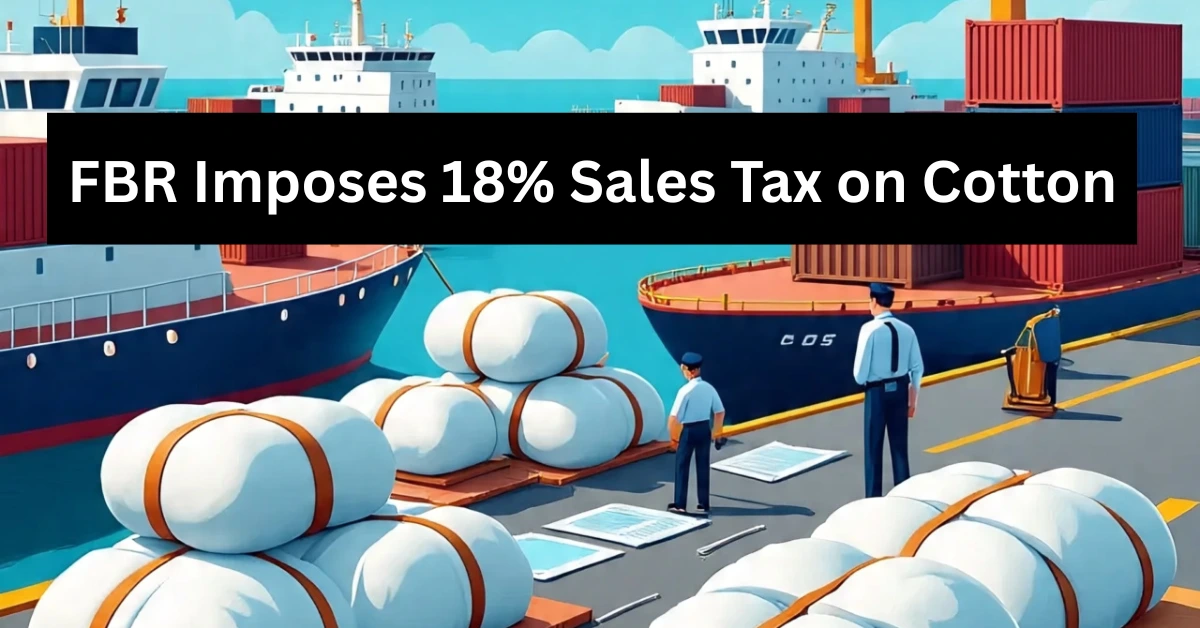FBR Slaps 18% Sales Tax on Cotton Imports, Cuts Them From Export Facilitation Scheme
The Federal Board of Revenue (FBR) has announced an 18 percent sales tax on the import of cotton yarn, grey cloth, and raw cotton, simultaneously removing these items from the Export Facilitation Scheme (EFS).
On Tuesday, the FBR issued SRO.1359(I)/2025 detailing amendments to the Export Facilitation Scheme. According to the notification, imports of compressor scrap and motor scrap will now be permitted solely for their copper content.
Under the revised EFS, raw cotton, cotton yarn, and grey cloth—classified under the respective headings of the Pakistan Customs Tariff—will no longer qualify for benefits under the scheme. However, consignments of these goods with bills of lading dated within ten days of the notification’s issuance will still be eligible under the existing framework.
The SRO further instructs that until the Board issues the official format for insurance guarantees, EFS users must submit a bank guarantee where applicable.
Additionally, EFS participants are allowed to procure new raw materials up to 10 percent of their total authorization without requiring prior approval from the Regulatory Collector or the input/output coefficient organization.
Regarding scrap imports, the permissible copper content is set at 10 percent by weight for motor scrap and 8 percent for compressor scrap. Customs duties, sales tax, and withholding tax will be applied at import on the remaining steel scrap portion, which must be sold only to sales tax-registered melters.
In exceptional circumstances, a committee comprising senior officials from the FBR, Ministry of Commerce, and Ministry of Industries and Production may grant an extension of up to nine additional months for utilization of the scheme, provided valid reasons are recorded.
Also Read: PSL X Franchises Cash In Big – Earnings Revealed from Central Pool
This move signals the FBR’s ongoing efforts to tighten regulatory controls and enhance revenue collection amid evolving trade dynamics.










